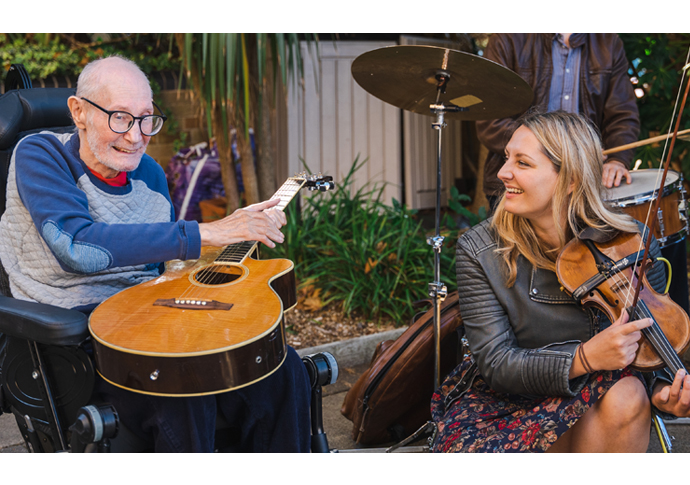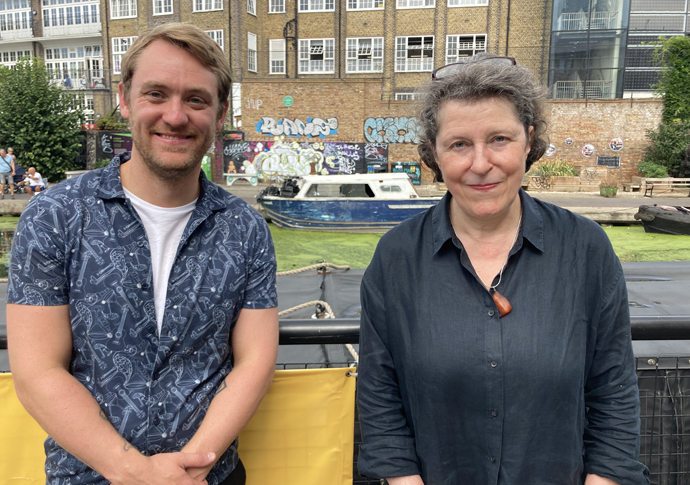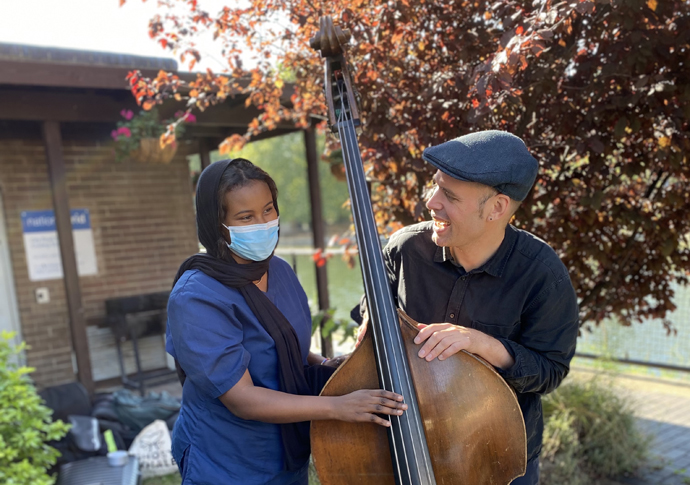Yes to Jagger and no to Vera Lynn – but does music help with dementia?
Friday, 19th August 2022 — By Anna Lamche

Bridgeside Lodge resident John with musician Alice Zawadzki
THE sound of live music filling care homes, day centres and hospital wards may have the power to improve lives, according to a music charity.
The Spitz, an Islington-based charity, is partnering with Northwick Park Hospital in Brent in a study examining the medical benefits of live music on those diagnosed with dementia. Led by dementia consultant Mahua Chatterjee, it will measure patients’ heart rates, wellbeing and depression before, during and after live performances on the wards.
“There’s all this anecdotal evidence to suggest it’s good for people’s mental health, but there’s not a huge amount of scientific stuff that we know of,” said Thom Rowlands, the charity’s general manager.

Jane Glitre and Thom Rowlands
“If you’re in a care home, everything gets done to you: you get told when to eat, someone helps you go to the loo, someone dresses you. You have so little autonomy. It’s about them getting seen as people, not medical cases.”
Opened in 1996, the Spitz was originally a live music venue based in old Spitalfields Market, hosting artists like Florence and the Machine, Hot Chip and Billy Bragg.
Jane Glitre ran the venue until 2007 when it was forced to close because of a redevelopment of the market.
“The Spitz venue attracted people of all ages and nationalities, and there was the sense that everyone was together,” Ms Glitre said. “In the back of my mind, I always had this sense of: who is in our nursing homes these days? They don’t want the White Cliffs of Dover any more. I’m sure they want something more funky. All the Rolling Stones were turning 70.”

Carer Leyla’s double bass lesson with Ben Hazleton
The Spitz was reborn as a charity in 2013, with Ms Glitre as its founding director. By 2018, they had taken up residency in Bridgeside Lodge care home, near Angel, where they remain today. More recently, they have also begun performing in hospitals.
Sessions are led by two musicians either on a one-to-one basis or in groups, who play music and encourage residents to join in, often by writing songs.
The Spitz currently run two sessions a week at Bridgeside Lodge, which gives musicians the space to “embrace the sadness and the grief” as well as the good times, Ms Glitre said. She said the programme can boost staff and musicians too, adding: “We pay our musicians properly – musicians’ lives are tough enough.”